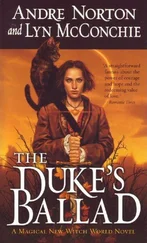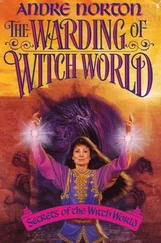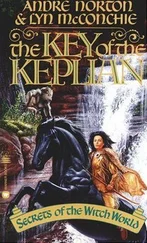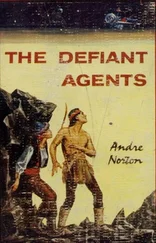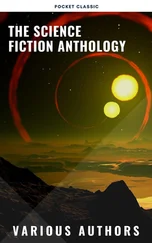It would have been great to be a rocket pilot, to push a button and go to Mars.
He had flared up more brightly than anyone in memory. And then he was gone. Yet there was ironic laughter where he had been; and his ghost still walked. That was the oddest thing: to encounter his ghost.
It was like coming suddenly on Haley’s Comet drinking beer at the Plugged Nickel Bar, and having it deny that it was a celestial phenomenon at all, that it had ever been beyond the sun. For he could have been the man of the century, and now it was not even known if he was alive. And if he were alive, it would be very odd if he would be hanging around places like the Plugged Nickel Bar.
This all begins with the award. But before that it begins with the man.
Professor Aloys Foulcault-Oeg was acutely embarrassed and in a state of dread.
“These I have to speak to, all these great men. Is even glory worth the price when it must be paid in such coin?”
Aloys did not have the amenities, the polish, the tact. A child of penury, he had all his life eaten bread that was part sawdust, and worn shoes that were part cardboard. He had an overcoat that had been his father’s, and before that his grandfather’s.
This coat was no longer handsome, its holes being stuffed and quilted with ancient rags. It was long past its years of greatness, and even when Aloys had inherited it as a young man it was in the afternoon of its life. And yet it was worth more than anything else he owned in the world.
Professor Aloys had become great in spite of—or because of?—his poverty. He had worked out his finest theory, a series of nineteen interlocked equations of cosmic shapeliness and simplicity. He had worked it out on a great piece of butchers’ paper soaked with lamb’s blood, and had so given it to the world.
And once it was given, it was almost as though nothing else could be added on any subject whatsoever. Any further detailing would be only footnotes to it and all the sciences no more than commentaries.
Naturally this made him famous. But the beauty of it was that it made him famous, not to the commonalty of mankind (this would have been a burden to his sensitively tuned soul), but to a small and scattered class of extremely erudite men (about a score of them in the world). Their recognition brought him almost, if not quite, complete satisfaction.
But he was not famous in his own street or his own quarter of town. And it was in this stark conglomerate of dark-souled alleys and roofs that Professor Aloys had lived all his life till just thirty-seven days ago.
When he received the announcement, award, and invitation, he quickly calculated the time. It was not very long to allow travel halfway around the world. Being locked out of his rooms, as he often was, he was unencumbered by baggage or furniture, and he left for the ceremony at once.
With the announcement, award, and invitation, there had also been a check; but as he was not overly familiar with the world of finance or with the English language in which it was written, he did not recognize it for what it was. Having used the back of it to write down a formula that had crept into his mind, he shoved the check, forgotten, into one of the pockets of his greatcoat.
For three days he rode a river boat to the port city, hidden and hungry. There he concealed himself on an ocean tramp. That he did not starve on this was due to the caprice of the low-lifers who discovered him, for they made him stay hidden in a terrible bunker and every day or two they passed in a bucket to him.
Then, several ports and many days later, he left the ship like a crippled, dirty animal. And it was in That City and on That Day. For the award was to be that evening.
“These I have to speak to, all these wonderful men who are higher than the grocers, higher than the butchers even. These men get more respect than a policeman, than a canal boat captain. They are wiser than a mayor and more honored than a merchant. They know arts more intricate than a clock-maker’s and are virtuous beyond the politicians. More perspicacious than editors, more talented than actors, these are the great men of the world. And I am only Aloys, and now I am too ragged and dirty even to be Aloys any more. I no longer am a man with a name.”
For he was very humble as he walked the great town where even the shop girls were dressed like princesses, and all the restaurants were so fine that only the rich people would have dared to go in them at all. Had there been poor people (and there were none) there would have been no place for them to eat.
“But it is to me they have given the prize. Not to Schellendore and not to Ottlebaum, not to Francks nor Timiryaseff, not even to Pitirim-Koss, the latchet of whose shoe I am not—but why do I say that?—he was not, after all, very bright—all of them are inadequate in some way—the only one who was ever able to get to the heart of these great things was Aloys Foulcault-Oeg, who happens to be myself. It is a strange thing that they should honor me, and yet I believe they could not have made a better choice.”
So pride and fear warred in him, but it was always the pride that lost. For he had only a little bit of pride, undernourished and on quaking ground, and against it was a whole legion of fears, apprehensions, shames, dreads, embarrassments, and nightmarish bashfulnesses.
He begged a little bit when he had found a poor part of town. But even here the people were of the rich poor, not the poor as he had known them.
When he had money in his pocket, he had a meal. Then he went to Jiffy Quick While You Wait Cleaners Open Day and Night to have his clothes cleaned. He wrapped himself in dignity and a blanket while he waited. And as the daylight was coming to an end, they brought his clothes back to him.
“We have done all we could do. If we had a week or a month, we might do a little more, but not much.”
Then he went out into the town, cleaner than he had been in many years, and he walked to the hall of the Commendation and Award. Here he watched all the great men arrive in private cars and taxis: Ergodic Eimer, August Angstrom, Vladimir Vor. He watched them and thought of what he would say to them, and then he realized that he had forgotten his English.
“I remember dog, that is the first word I ever learned, but what will I say to them about a dog? I remember house and horse and apple and fish. Oh, now I remember the entire language. But what if I forget it again? Would it not be an odd speech if I could only say apple and fish and house and dog? I would be shamed.”
He wished he were rich and could dress in white like the street sweepers, or in black leather like the newsboy on the corner. He saw Edward Edelstein and Christopher Cronin enter and he cowered on the street and knew that he would never be able to talk to those great men.
A fine gentleman came out and walked directly to him.
“You are the great Professor Foulcault-Oeg? I would have known you anywhere. True greatness shines from you. Our city is honored tonight. Come inside and we will go to a little room apart, for I see that you will have to compose yourself first. I am Graf-Doktor Hercule Bienville-Stravroguine.”
Whyever he said he was the Graf-Doktor is a mystery, because he was Willy McGilly and the other was just a name that he made up that minute.
Within, they went to a small room behind the cloak room. But here, in spite of the smooth kindness of the gracious gentleman, Aloys knew that he would never be able to compose himself. He was an epouvantail, a pugalo, a clown, a ragamuffin. He looked at the nineteen-point outline of the address he was to give. He shuddered and he gobbled like a turkey. He sniffled and he wiped his nose on his sleeve. He was terrified that the climax of his life’s work should find him too craven to accept it. And he discovered that he had forgotten his English again.
Читать дальше

